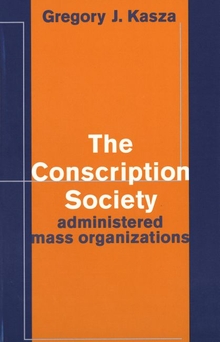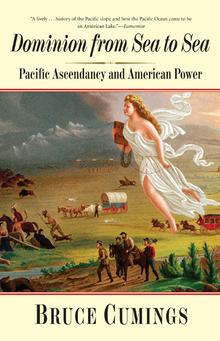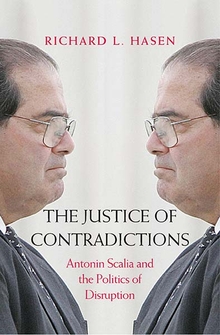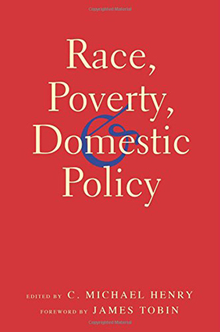The Conscription Society
WARNING
You are viewing an older version of the Yalebooks website. Please visit out new website with more updated information and a better user experience: https://www.yalebooks.com
Administered Mass Organizations
Gregory J. Kasza
Using comparative history and organization theory, Kasza analyzes the politics of the conscription society in both military and single-party regimes. He discusses the origins of AMOs in Japan, the Soviet Union, and Fascist Italy and their subsequent spread to China, Egypt, Nazi Germany, Peru, Poland, and Yugoslavia. He focuses on the use of AMOs to curb political opposition, to mobilize for war, and to shift control over the means of production. Kasza shows how, in the hands of despotic rulers, AMOs have contributed to the extremes of political barbarism characteristic of the twentieth century.
"The book is a significant contribution, a highly persuasive argument for the commonality of the administered mass organization in the twentieth century. Kasza's achievement in isolating and identifying this organizational form is original, and his comparative perspective is especially valuable."—Thomas Remington, Emory University
"Kasza challenges many fundamental assumptions about how political and social organizations have functioned in this most brutal of centuries. The Conscription Society is a highly ambitious and ultimately successful attempt to bring social science into the post-Cold War period by comparing and contrasting social organizations in a variety of single-party regimes."—Blair A. Ruble, director, Kennan Institute for Advanced Russian Studies
"Students of modern authoritarianism are greatly in Kasza's debt. His original study of administered mass organizations identifies, maps, dissects, and analyzes a crucial political species in its many habitats. A powerful concept examined in great breadth."—James C. Scott, Yale University
"The Conscription Society is an impressive book not only because of its rigorous comparative dimension/framework, but also because it makes three important interpretive points. Kasza emphasizes the centrality of war in modern society, demonstrates the importance of administered mass organizations in preparing for war, and, by analyzing the role of administered mass organizations in despotic rule, shows why some authoritarian and totalitarian regimes were more successful than others."—Richard J. Smethurst, professor of Japanese history, University of Pittsburgh
"Kasza's book provides an important angle to explain the rise and the persistence of authoritarian regimes in the 20th century. The main contribution of this book is the development of a conceptual construct of the AMO as an identifiable and particular organizational form in political analysis. . . . I am impressed by the author's command of a strong comparative perspective and his knowledge about a wide range of social and historical contexts."—Xueguang Zhou, American Journal of Sociology
"This well-written book effectively combines empirical and normative analyses to provide insight into an area of significance often neglected by comparativists in the past. Highly recommended for all collections on political organization, political development, and military affairs."—Choice
"This thought-provoking book should be read by students of Japanese history and comparative politics alike. It shifts the focus from voluntary groups and political parties to the illiberal, managed modes of 'participation,' which form a major part of public life in twentieth-century Japan and other societies."—Sheldon Garon, Journal of Japanese Studies
Publication Date: August 30, 1995








